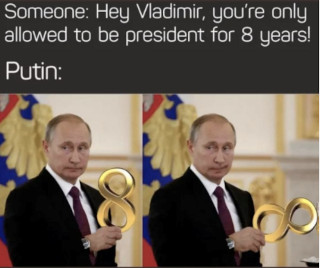[From Unsplash]
Good morning,
In The Art of Business Wars, which came out of the popular podcast series Business Wars, David Brown says that good leaders don’t wait for the right time, but start early, making small bets. He writes:
“‘You don’t learn to walk by following the rules,’ Virgin founder Sir Richard Branson wrote. ‘You learn by doing, and by falling over.’ Resilient businesses aren’t afraid of falling. In fact, if they don’t stumble now and then, they know they aren’t taking enough risks. Fear of failure will kill a company faster than any flop.
“The instinct in tough times is to hunker down and play it safe… however, great leaders keep making bets in good times and bad. That’s because they keep one eye toward the future even as they navigate the perils of the present. These leaders mitigate the risks by keeping their bets as small as possible, but they never let adverse conditions—industry woes, economic recessions, even wars—slow the pace of innovation. Then, when a bet shows promise, they put everything the company has behind it. They know that prudence and frugality won’t save them. Sell or die.
“There are no shortcuts. Start now, not when it’s easier down the road. Great products take time to develop—you can’t buy them later when resources aren’t as tight. Countless businesses have cratered by throwing money at a problem ‘that only starting earlier could have solved. If you wait until times are good to start building your company’s future, you simply won’t have one.’”
Have a great day.
Debating the hijab
How are we to think about the debate in the public domain over the hijab? Most people feel conflicted about it. Is it something that must be opposed because it implies women who wear it are oppressed? Or must the right to wear a hijab be defended? There is no need to take either of these positions, argues Pratap Bhanu Mehta in The Indian Express.
“What the meaning of hijab is to people who wear it is none of my business; it is not for me to judge. Like many symbols, it can signify anything from dignified faith, self-assertion and empowerment, to oppression. But the important thing from a public point of view is that it does not, on its own, interfere with any project of civic empowerment: It does not interfere with education, holding a job, voting, participating in public life, or achieving anything in life. To, therefore, use it as a pretext for disqualifying someone from teaching or going to college is a travesty.
“Nor is the argument from a narrowly construed formalism about uniforms and dress codes persuasive. After all, any decent society makes lots of small accommodations and should do, for a janeu, a tilak, a choti, and turban or, in public spaces, even scant attire of sadhus, that might otherwise outrage modesty. These small accommodations also gave Indian society a texture and depth, a lived diversity. The only guiding criteria is whether the particular practice in question impedes any civic purpose or substantial interest of the person who wears it…
“If someone wears only saris, what does that signify: Aesthetic preference, sartorial conservatism, patriarchy, national loyalty or what? So this whole question of meaning is a bit beside the point.”
Dig deeper
Academia and the media
A provocative essay in Esquire that explores the incesteous relationship between mainstream media and academia in the US got our attention. “A few weeks ago, I read an essay in The Atlantic by an Ivy League professor suggesting that universities going remote now is a ‘wrong decision’ since we have entered a ‘post-vaccine’ era. It was upsetting. To say the least.”
Whatever was the writer Luisa Marcella Ossa talking about? Does her essay hold a mirror to how conversations in the mainstream English language media in India are conducted, we wondered. And we read on.
“Joanne McNeil in a 2020 Neiman Lab piece details the problem of cronyism in journalism and the skewed, even inaccurate, content that can result. She cites a study by the Asian American Journalists Association which collected data on one hundred and fifty summer interns in 2018 at the following media outlets: The Wall Street Journal, The New York Times, The Washington Post, Los Angeles Times, NPR, Politico, and the Chicago Tribune. According to McNeil, 65 percent of the interns had attended the most selective schools in the country…
“Constantly centering the unique experiences of those at elite institutions as the norm gives the public a skewed perspective on higher education. It erases the variety of institution types and experiences across the country.”
Perhaps, she has a point. Media will do well to consciously seek diversity.
Dig deeper
How Putin thinks

(Via WhatsApp)
Found anything interesting and noteworthy? Send it to us and we will share it through this newsletter.
And if you missed previous editions of this newsletter, they’re all archived here.
Warm regards,
Team Founding Fuel
(Note: Founding Fuel may earn commissions for purchases made through the Amazon affiliate links in this article.)


